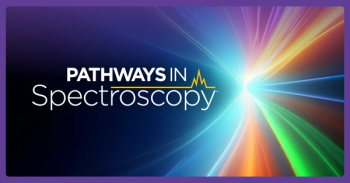
AAFS 2025: Tom Metz Talks About Current Challenges in Molecular Measurement Science
In this video clip, Metz discusses his focus on molecular measurement science using mass spectrometry (MS) to study small molecules, emphasizing the challenge of identifying and quantifying unknown compounds.
The 77th Annual American Academy of Forensic Sciences Conference took place in Baltimore, Maryland, last month. Over the course of a week, conference attendees had the opportunity to attend talks related to the various applications, techniques, and disciplines of forensic science. A major focus of the conference was on technology, and how it is currently being used in the industry. Because artificial intelligence (AI) is being integrated into a wide variety of scientific disciplines, several talks and oral symposia focused on this topic, describing how AI is changing the way forensic investigations are being routinely conducted.
Other talks were worth highlighting. Tom Metz, who is a Laboratory Fellow and Chief Science Officer of the Biological Sciences Division at Pacific Northwest National Laboratory, delivered a talk at AAFS titled, “Reference-Free Identification of Fentanyl Analogs.” Recently, Metz sat down with Spectroscopy to discuss his current research, including the major challenges in molecular measurement science currently (1,2).
In this video clip, Metz discusses his focus on molecular measurement science using mass spectrometry (MS) to study small molecules, emphasizing the challenge of identifying and quantifying unknown compounds due to the rarity of obtaining pure forms. He highlights that only a small fraction (less than 1%) of the chemical space is accessible in this way. Metz points out the daily exposure to various chemicals, which can affect health, and expresses a desire to advance mass spectrometry to better understand small molecule interactions in biological samples, suggesting that current methods only scratch the surface of this knowledge.
Metz previously directed core laboratories for major National Institutes of Health (NIH) programs, such as the Undiagnosed Diseases Network and the Environmental Determinants of Diabetes in the Young study (3). From 2021 to 2023, he served as President of the Metabolomics Association of North America (3). Currently, he leads the PNNL m/q Initiative and co-leads the ChemBio Analytical Sciences Hub within the NEXUS Exposome Research Coordination Network (3).
This interview is part of our coverage of AAFS 2025. To check out all our coverage of the AAFS Conference, click
References
- Wetzel, W. The State of Forensic Science: Previewing an Upcoming AAFS Video Series. Spectroscopy. Available at:
https://www.spectroscopyonline.com/view/the-state-of-forensic-science-previewing-an-upcoming-aafs-video-series (accessed 2025-03-14). - Wetzel, W. AAFS 2025: Tom Metz Discusses Applying Metabolomics and Lipidomics in Studying Disease. Spectroscopy. Available at:
https://www.spectroscopyonline.com/view/aafs-2025-tom-metz-discusses-applying-metabolomics-and-lipidomics-in-studying-disease (accessed 2025-03-14). - Pacific Northwest National Laboratory, Thomas O. Metz. PNNL.gov. Available at:
https://www.pnnl.gov/people/thomas-o-metz (accessed 2025-03-17).
Newsletter
Get essential updates on the latest spectroscopy technologies, regulatory standards, and best practices—subscribe today to Spectroscopy.




